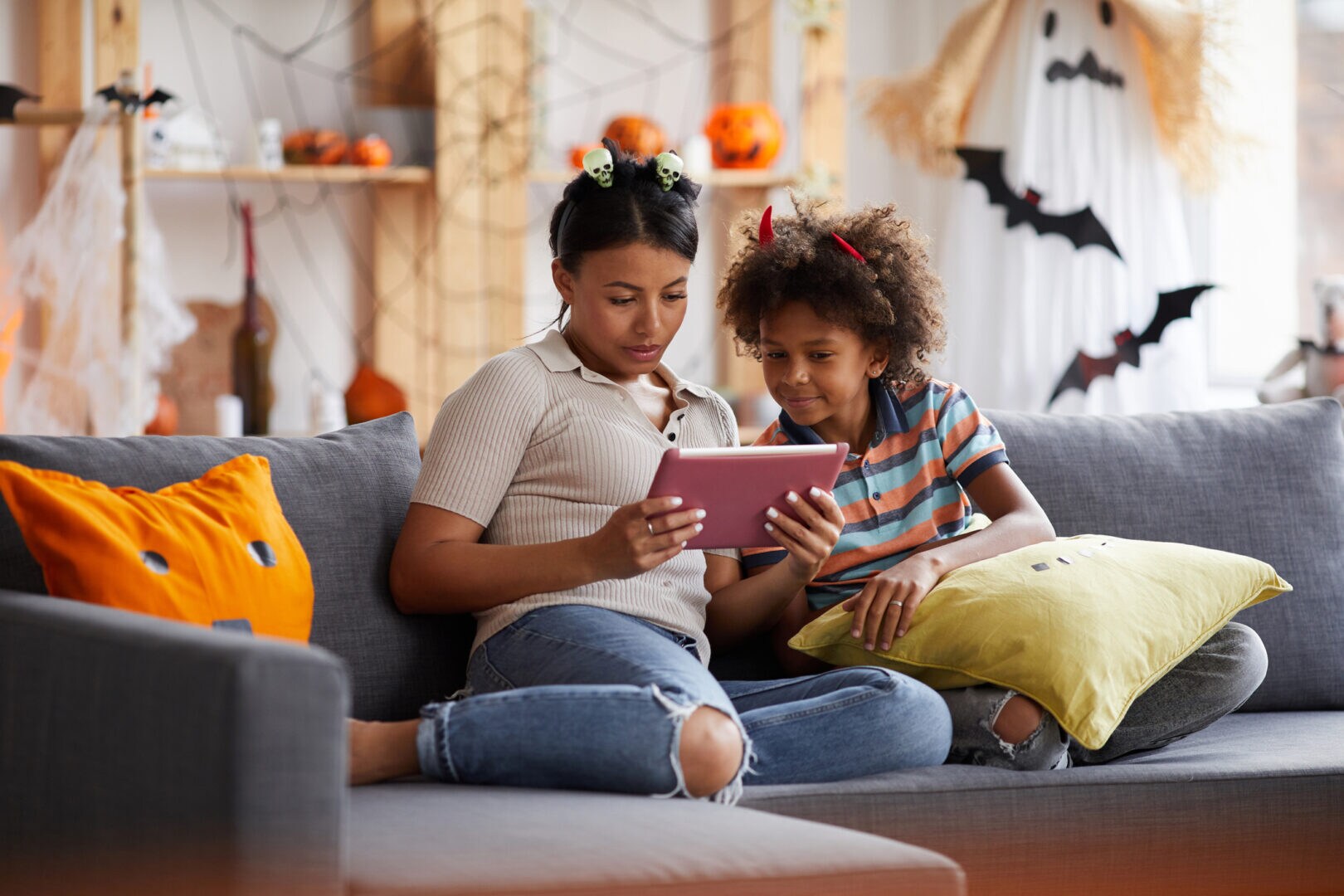For kids, Halloween is a time to dress up and get free candy, but the holiday actually has a rich history. October is the perfect time to teach your kids about the origins of Halloween and help them understand some of the facts behind the traditions. It’s also a great way to sneak in a little history that kids can get excited about.
Lesley Pratt Bannatyne, Halloween expert and author of “Halloween Nation: Behind the Scenes of America’s Fright Night,” and Deborah Heiligman, author of “Celebrate Halloween With Pumpkins, Costumes, and Candy,” share tips on how to teach your kids that the holiday is about more than just princesses, pirates and candy.
1. Brush up on Halloween facts
Before you teach kids about Halloween, you need to know some information yourself. Read about how Halloween began as a Celtic holiday (called Samhain) where ghosts would come back to earth (spooky!) and how it evolved into All Hallows’ Eve.
Learn more about Halloween history from the History Channel, the Library of Congress and Bannatyne’s website.
2. Keep it age appropriate
Halloween may seem like a kid-friendly holiday, but Heiligman advises keeping it light for smaller children who could get scared.
“The best age is when kids start asking questions, which will differ from child to child. You can gear your answers to the age your child is. Older children, around 8 or 9, probably will be ready to hear all about the Celts. But all children can learn about the harvest holiday aspects of Halloween.”
Bannatyne also recommends editing some of the spookier aspects for younger kids. “To make Halloween history un-scary, and yet still tell the true story, parents can talk about Halloween as the holiday where people were allowed to dress up as someone or something they imagined.”
3. Get a family history of Halloween
A great way to discuss Halloween history is through old photos and stories. Dust off the old photo album and talk about traditions from generations ago. What were some of your family’s traditions when you were growing up? “Over time, we’ve retooled [Halloween] to be more child-centered, about candy and costumes and community,” Bannatyne shares. “Little children today are not aware that their grandfathers and great-grandfathers once soaped windows and egged cars.”
While you probably don’t want to encourage pranks and vandalism, it’s always fun for kids to see old pictures of their parents and grandparents as young kids, and it provides a context for the lesson.
4. Make it a family affair
Many of the harvest traditions, such as pumpkin patches and hay rides, are a fun way to incorporate family bonding. Take your kids to a fall festival or a pumpkin patch and spend the day with them. They can have fun getting their faces painted and picking a pumpkin. Then take the party home and make jack-o’-lanterns.
5. Get cooking
If you have a child who loves to help in the kitchen, this can be a great time to talk about the history behind the holiday while prepping Halloween treats.
“Making food together is a fun activity,” Heiligman states. “Make pumpkin bread or roast pumpkin seeds. Talking while cooking is always a great thing.”
If you’re making pumpkin cookies, talk about this history of the jack-o-lantern, which Bannatyne says, “was once used as a prank! Children used to carve them, then jump out from behind a wall and try and scare their neighbors and friends in the dark of late October.”
6. Encourage creativity
Halloween is a great holiday for kids with huge imaginations. Everything from making decorations to choosing costumes allows their minds to roam free.
“Halloween is about trying to imagine what’s out there in the dark and using your creativity to take control of it for this one night,” Bannatyne says.
This is a great chance for you to help kids who may be scared realize that monsters are works of fiction. Heiligman advises always reminding your kids that the spooky things — such as scary lawn decorations — are imaginary.
7. Celebrate your own harvest
Use your backyard or community garden to talk about how Halloween used to mark the end of the harvest season — and what that meant for people. Help your kids pick any leftover autumn vegetables and make a hearty harvest feast together. (The veggies are also a great complement to the overdose of Halloween candy your kids are probably consuming!)
8. Start a fire
During Samhain, Druids built bonfires to celebrate the holiday and burn crops as sacrifices. Wind down after trick-or-treating by sitting around your backyard fire pit and telling age-appropriate ghost stories.




